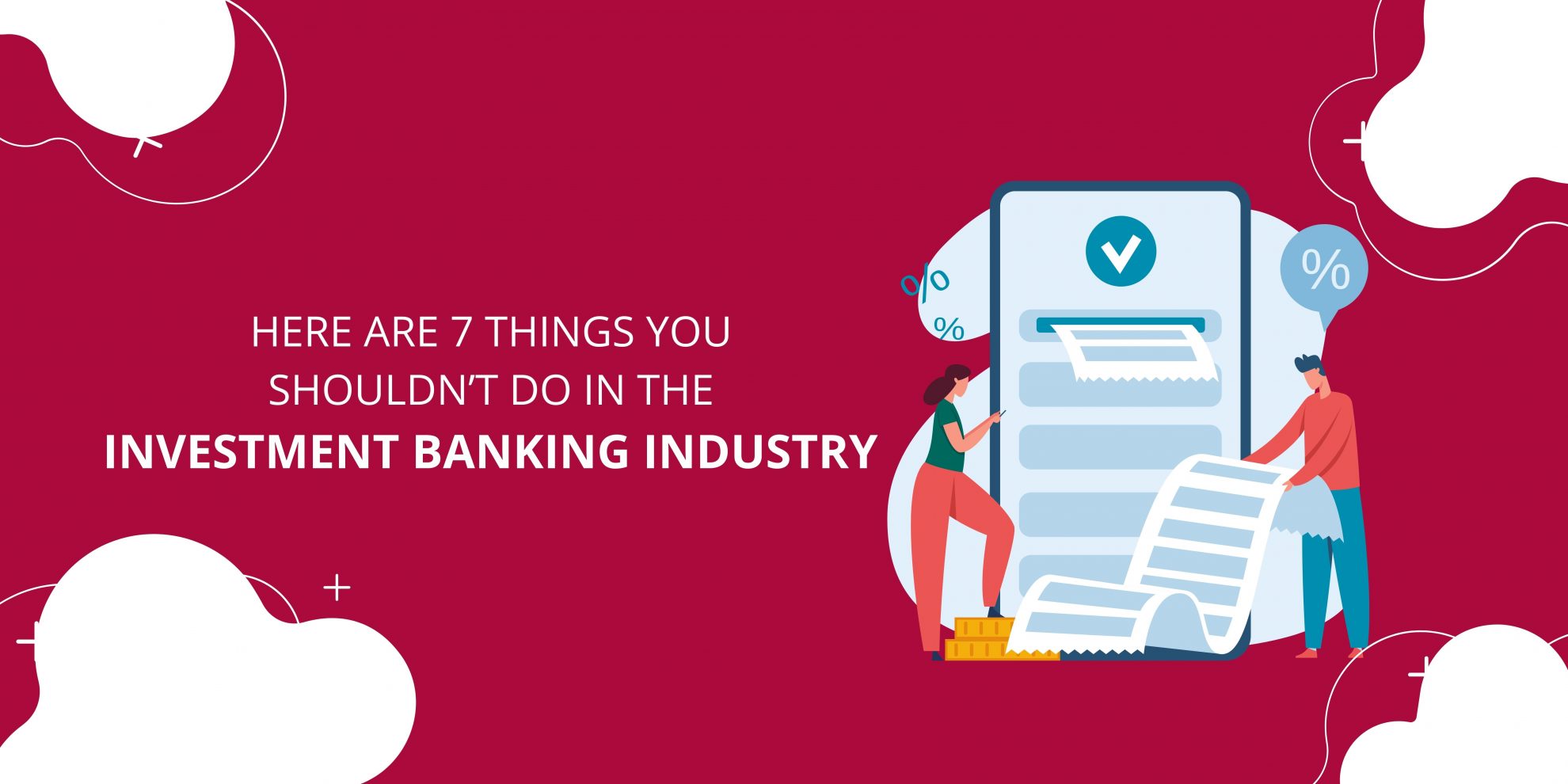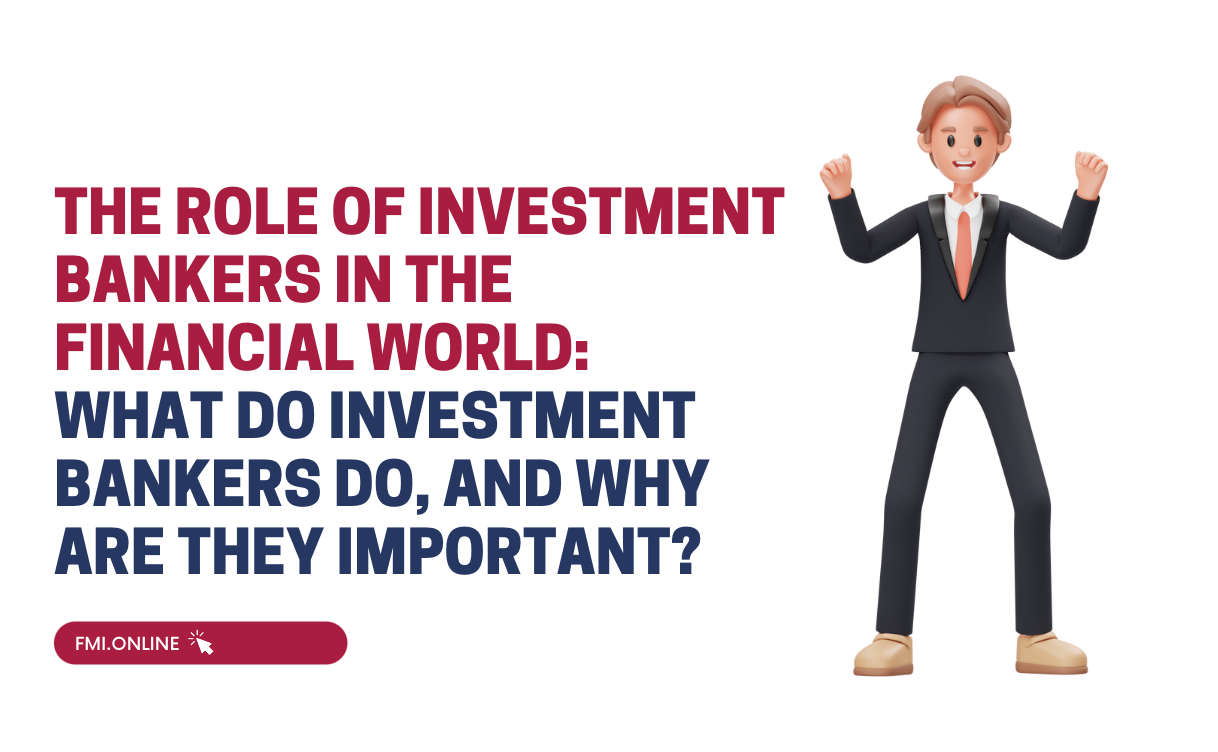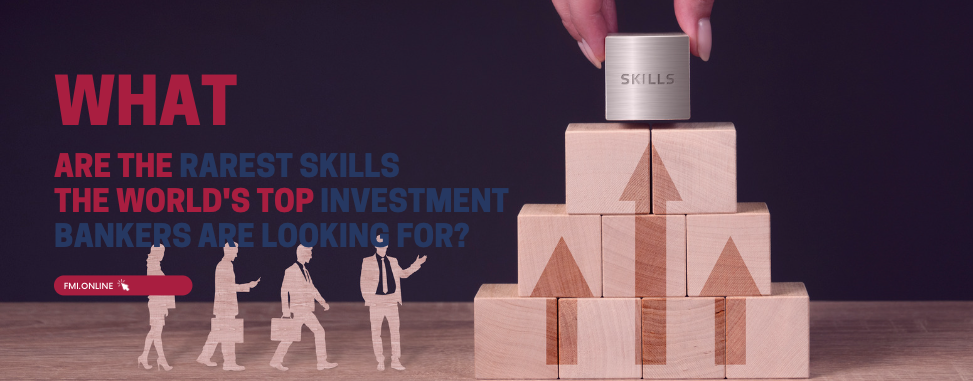If you’re an aspiring investment banker, you will find plenty of content online about the shiny bits of this industry – the big paychecks, the ritzy lifestyle, the glamour of Wall Street etc. And when you desperately want something such as a high-paying job, it’s easy to focus on the pros more than the cons. It’s only when you are in the situation and have achieved what you wanted, do you start to notice the pitfalls. As a result, people might feel resentment towards the work and begin to experience the infamous burnout.
However, there’s an alternate path. Once you understand, beforehand, the demands and challenges of a high-pressure, high-rewards job such as investment banking, you can prepare better. So, in this article, we take you through what not to do in investment banking to enjoy a smoother professional experience. This applies whether you are on the verge of entering the industry or are already in it:
1. Don’t forget the journey:
Once you have bagged that interview and received the offer letter for the job you most, you’ll be ecstatic. Nothing else matters. But a couple months into the work, it starts settling in and feeling ordinary. A few more months pass, and being an investment banker doesn’t feel any more special to you than say, having toast for breakfast.
Pause.
At such a juncture, remember how you got here. Remember how badly you wanted to get here. Don’t discount your journey of challenges, hard work, and the rigorous interview prep. Sometimes, you’re living the dream you wanted but you barely even know it.
2. Don’t forget who you are:
Investment banking is notorious for a fratty culture. You might like this or you might not. Yet, when you are surrounded by a homogenous group of people, all of who are graduates from stellar universities, highly smart and competent, you may feel tempted to fit in. But, remember that you’re also here for a reason. You don’t need to alter your identity to blend in with others. Your personality is defined by who you are and the fresh mindsets you can bring to the table. So, don’t feel compelled to leave behind that part of yourself.
3. Don’t let work overpower your entire life:
It is commonly known that investment bankers clock in anywhere between 60-100 working hours a week. If you’re someone who aims for a healthy work-life balance, this might deter you. Yet, if you organise in advance – both your mindset and your time – this challenge could be more manageable than you think.
Fortunately, with a shift in work environment expectations post the pandemic, many major banks are also endorsing flexibility. According to this New York Times article, “[major banks] are shifting to more days at home, hours that adjust to suit family needs and reworked office spaces, in a break with industry tradition that has long emphasized face-to-face relationships built over grueling hours and punishing workloads.” For example, America’as largest bank J.P.Morgan Chase, expects that only about half its employees will ultimately be in the office five days a week.
These tectonic changes should assure you that work does not need to be your entire life.
4. Don’t skimp on physical fitness:
The long hours at the desk, especially if working from home, which offers fewer options to move around, can be detrimental to health. Even amidst your busy life as an investment banker, find ways to take care of your fitness. This includes both diet and physical activity. The most natural and somewhat reasonable excuse you’ll find is that you don’t have the time. But think about whether that is really true? Are there are distractions in your day that can be combined or replaced by physical activity?
For example, maybe you watch Netflix for 45 minutes a day. How about combining that with the same time at the gym? As an investment banker, you are probably lucky to be equipped with facilities like an in-house gym at your workplace. Or maybe you can walk to grab lunch. This article offers an elaborate diet and exercise regime for investment bankers.
Finally, even if you think making money is far more important than your health, remember that only of these is highly dependent on the other.
5. Don’t overlook your mental health:
This might seem like hollow advice because a job like investment banking is known to be stressful and high-stakes. But if you were someone who couldn’t handle stress, you’d probably not dip your toes in the investment banking pond. So, trust yourself. Remember that you don’t need anyone to validate your mental health and how you feel internally, whether good or bad.
Further, find out whether your organisation provides any resources for mental health support. For example, in 2019, J.P.Morgan Chase instated on-site counselors at its London branches. Similarly, Goldman Sachs has trained dozens of its UK staff members to become mental health first aiders. This allows them to spot any signs of stress or anxiety in the workforce through changes in appearance, working habits or social patterns, and then provide access to places that can offer help.
Use the resources at your disposal, and even if you feel a stigma at your workplace to address mental health issues, ensure that you confide in someone outside of work.
6. Don’t make money your only motivation:
Investment bankers start off their professional journeys with salaries of $100,000 on average. This only inflates with fatter bonuses as you progress in your career. This is a massive motivation for many working in the industry. And there’s nothing wrong with it. But, don’t let money be your sole motivation to pursue becoming an investment banker.
You will be surprised at how quickly money loses its charm when all your basic and most of your luxury needs are met. You need a factor beyond money to motivate you. Maybe you love working with numbers. Or maybe you have a passion for driving mergers and acquisitions for large corporate clients. Or maybe you are simply fantastic at negotiations and being a people person. Find your strength and play on it.
7. Don’t stop learning:
In any industry, as time and trends progress, you will have opportunities to learn new concepts. Use these chances to equip yourself. If you feel saturated in one aspect of investment banking, is there anything new that you can learn not only to move ahead in your career but also because you’re curious? Investment banking is known to offer steep learning curves with the opportunity to work with high-profile and eminent clients.
Learning as you go will keep you interested in solving challenges and aid you in climbing the professional ladder, if that’s what you hope to do. If you’re an aspirant and don’t have access to real-time professional opportunities yet, you can still advance your knowledge with various tools online. At FMI, we offer comprehensive and cost-effective courses specific to pursuing investment banking as a career as well as resources to ace IB interviews and learn about concepts like mergers and acquisitions.
Conclusion:
Investment banking is a profession that will throw many challenges your way. Yet, if this is something you passionately want to do, you can find innovative ways to overcome these obstacles with enough preparation and a solutions-driven mindset. The above guidelines will help you succeed professionally, yet in a holistic manner. Plus, as we said earlier, don’t forget the journey once you have crossed the destination!












 60+ hours
60+ hours 9 courses
9 courses



